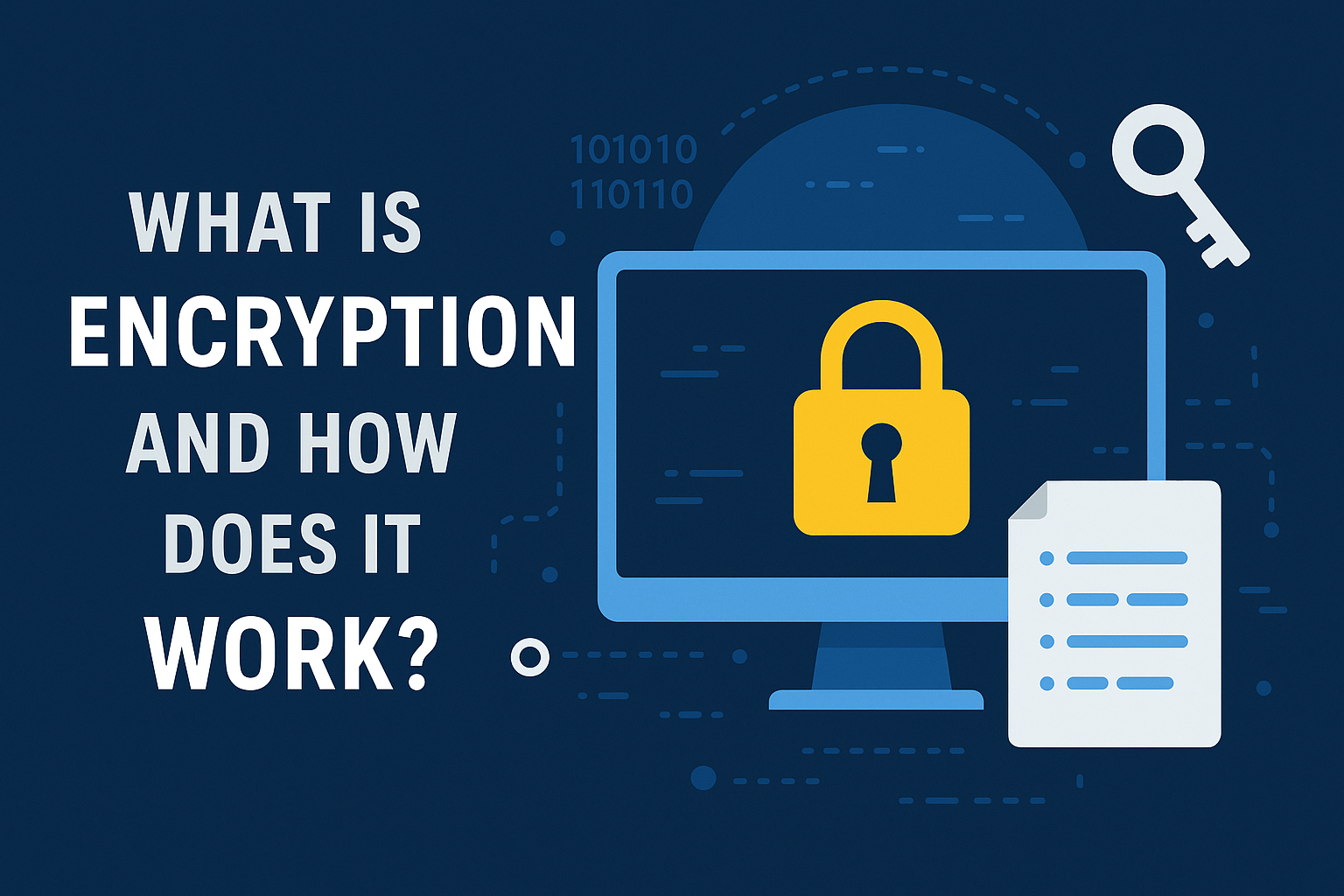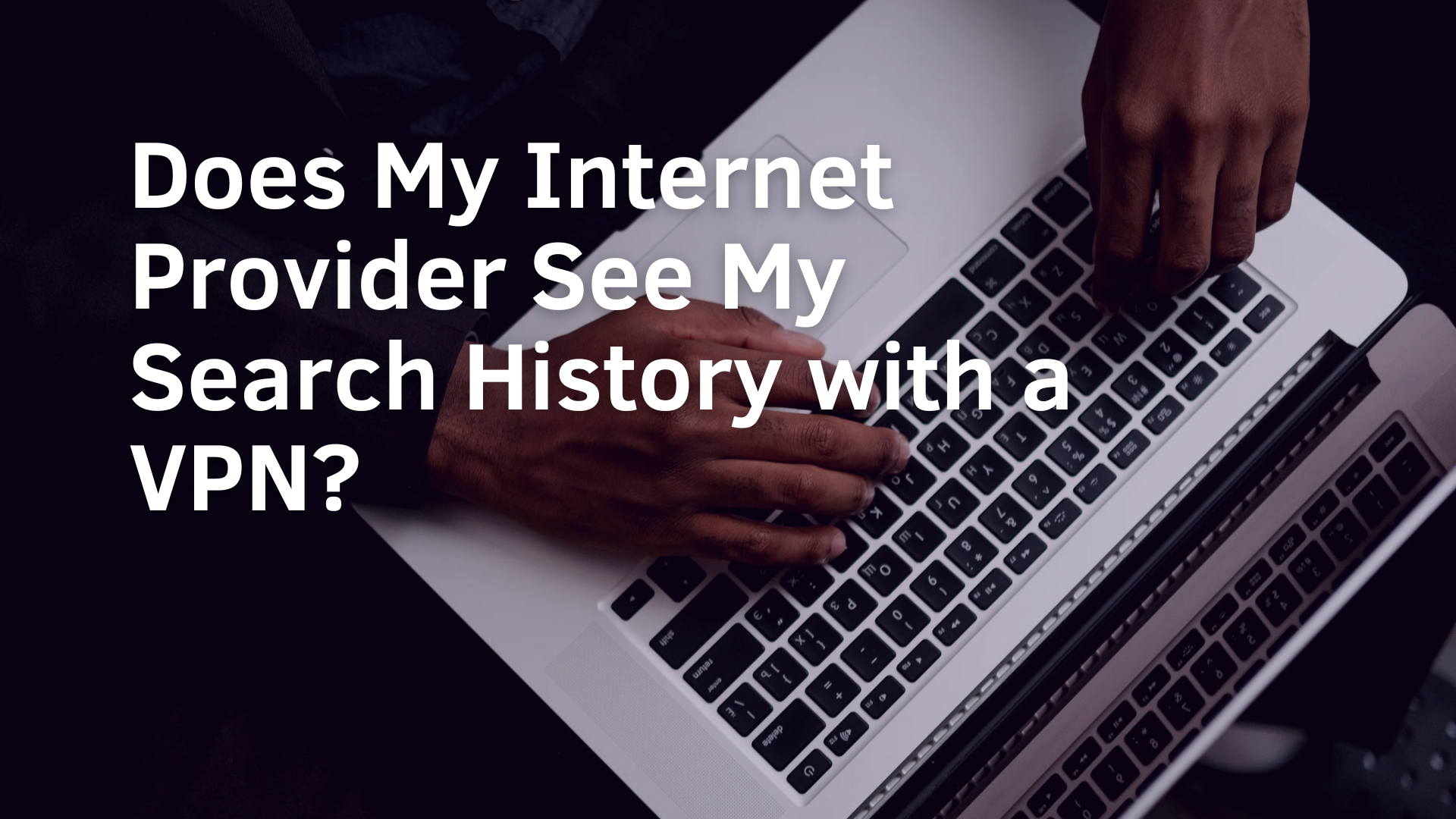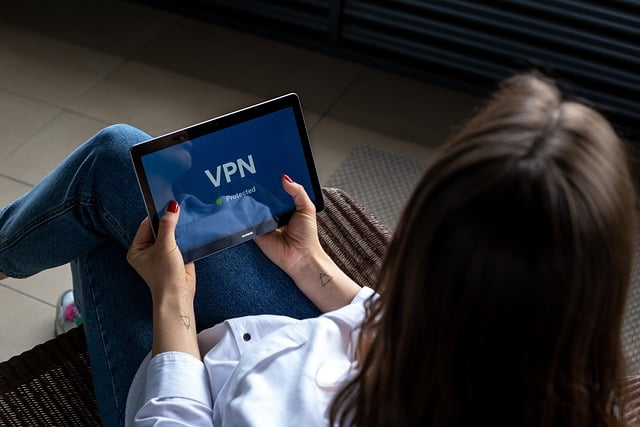Advanced VPN Security – Stay Ahead of Hackers, ISPs, and AI Surveillance

VPN technologies are experiencing rapid changes which modify the way users approach online privacy protection. Advanced users who run businesses need to develop top-level security strategies to capitalize on the basics of VPN functionality. The document examines upcoming developments together with upcoming security challenges along with proven methods which secure your digital privacy for the future.
The Rise of AI-Powered Cyber Threats
Cyber-Attacks Are Leverage AI. Deep packet examination (DPI), machine learning vehicle traffic evaluation and AI-manage phishing attacks are every passing as well developed. To counter these threats:
- Use obfuscation protocols: Advanced VPN providers now offer obfuscated servers that mask VPN traffic as regular HTTPS traffic.
- Multi-hop VPN chains: Routing traffic through multiple VPN servers enhances anonymity.
- Decentralized VPNs (dVPNs): Unlike traditional VPNs, dVPNs distribute traffic across a network of independent nodes, making surveillance harder.
Post-Quantum Cryptography: The Future of Encryption
Quantum computing threatens existing encryption standards, and VPN providers must adapt. Forward-thinking VPN services are implementing:
- Post-quantum encryption algorithms: Lattice-based cryptography and other NIST-approved methods ensure long-term security.
- Perfect Forward Secrecy (PFS): Generates unique encryption keys for each session, preventing future decryption of past communications.
VPNs vs. AI-Driven Surveillance
Governments and corporations are employing AI-powered surveillance to analyze browsing patterns and detect VPN usage. To stay undetectable:
- Use VPN providers with RAM-only servers: These servers do not store logs and reset upon every reboot.
- Employ stealth VPN modes: Some VPNs integrate StealthVPN or Stunnel to bypass aggressive censorship.
- Self-hosted VPNs: Running a VPN on a personal cloud server reduces reliance on commercial providers and lowers the risk of data exposure.
The Battle Against ISP Throttling and Censorship
ISPs increasingly throttle VPN traffic to discourage its use, especially for streaming and torrenting. Bypassing this requires:
- Using WireGuard over UDP or TCP: WireGuard is faster and more resilient against throttling.
- VPN over Tor or Shadowsocks: Combining VPN with other privacy tools can obfuscate traffic further.
- Split Tunneling for Efficiency: Route critical traffic through VPN while keeping low-risk activities on regular internet to optimize speed.
The Importance of Regular VPN Audits
Many VPN providers claim to be “no-log,” but only a few undergo independent audits. Before choosing a VPN:
- Look for third-party security audits from firms like Cure53 or PwC.
- Check transparency reports for details on data requests and compliance.
- Assess jurisdiction risks: Avoid VPNs based in surveillance-heavy countries.
Decentralized VPNs (dVPNs): The Next Frontier
Traditional VPN services rely on central servers, making them vulnerable to takedowns and monitoring. dVPNs operate on blockchain technology and peer-to-peer networks, providing enhanced privacy. Top dVPN projects include:
- Mysterium – Open-source and node-based for anonymous browsing.
- Orchid – Uses a decentralized marketplace for bandwidth sharing.
- Sentinel – Blockchain-powered VPN for censorship resistance.
The Role of Blockchain in VPN Security
The security that blockchain technology provides to VPN systems stems from its decentralized network structure that eliminates central failure locations and strengthens privacy measures. The traditional VPN model depends on servers that authorities could compromise or monitor or force down. Through blockchain implementation decentralized VPNs (dVPNs) spread their network infrastructure between individual nodes to make them less vulnerable to censorship and surveillance.
Benefits of Blockchain-Powered VPNs:
- Trustless Security – No single entity controls the VPN network, reducing the risk of data logging.
- Tamper-Proof Records – Blockchain’s immutable ledger ensures transparency in logging policies and VPN operations.
- Tokenized Bandwidth Sharing – Some dVPNs allow users to share unused bandwidth in exchange for cryptocurrency, creating a peer-powered privacy network.
While blockchain-based VPNs are still emerging, platforms like Sentinel, Orchid, and Mysterium are pioneering this new frontier of privacy.
Edge Computing and VPNs: A New Era of Privacy
PC security plans through VPN systems need to modify themselves as edge computing expands. Edge computing operates different from cloud-based systems since it processes data near users in order to minimize delay time while enhancing network privacy. The transition presents several impacts on VPN operation because of the following factors:
- Faster, More Efficient Encryption – Edge computing minimizes the distance data must travel, enhancing VPN performance.
- Enhanced Anonymity – By decentralizing data processing, edge networks make it harder for ISPs and governments to track VPN usage.
- Localized Privacy Solutions – Future VPNs may integrate with edge devices to create personalized, on-device encryption without relying on centralized VPN providers.
чива принимает место в сетях будет создать необходимость для VPN providers чтобы оптимизировать свои протоколы чтобы они работали простым образом с децентрализованными процессами и обеспечивали безопасность данных в развивающейся дигитальной среде.
How ISPs Detect and Block VPNs (And How to Bypass It)
Internet Service Providers enact multiple advanced procedures to detect and block VPN traffic since they operate actively in countries with strict internet censorship norms. Knowledge about these detection techniques becomes essential because it enables users to bypass restrictions and maintain their privacy rights online.
How ISPs Detect VPN Traffic
- Deep Packet Inspection (DPI) – Analyzes data packets to identify VPN signatures.
- IP Blacklisting – VPN providers often use shared IPs, making them easy targets for blocking.
- DNS Filtering – Some ISPs block access to VPN domains or manipulate DNS requests.
- Traffic Analysis – VPN traffic patterns, such as encrypted tunneling, can raise red flags.
How to Bypass VPN Blocks
- Use Obfuscated Servers – VPNs with stealth or obfuscation technology disguise traffic as regular HTTPS data.
- Switch to a Less Common Protocol – WireGuard and OpenVPN-TCP can sometimes bypass restrictions better than OpenVPN-UDP.
- Utilize VPN over Tor or Shadowsocks – These add an extra encryption layer, making VPN traffic harder to detect.
- Rotate VPN Servers Frequently – Changing servers helps avoid blacklisted IPs.
- Use a Dedicated IP – Some VPNs offer private IPs that are less likely to be blocked.
By choosing a VPN provider that continuously updates its stealth technology, users can stay ahead of ISP restrictions.
The Evolution of VPN Protocols: What’s Next?

VPN protocols define how data is encrypted and transmitted, directly impacting security, speed, and reliability. As cyber threats evolve, so do VPN protocols.
Current Leading VPN Protocols
- OpenVPN – The industry standard for strong encryption, but can be slower due to overhead.
- WireGuard – A lightweight, high-speed protocol with state-of-the-art cryptography.
- IKEv2/IPSec – Well-suited for mobile devices due to its ability to quickly reconnect.
Emerging VPN Protocols and Innovations
- Post-Quantum VPN Protocols – New encryption methods resistant to quantum computing attacks.
- Hybrid Protocols – Combining WireGuard with obfuscation techniques to evade censorship.
- AI-Optimized VPN Routing – Future VPNs may leverage AI to automatically choose the best protocol and server based on network conditions.
As VPN protocols continue to evolve, the focus will be on speed, resistance to detection, and future-proof encryption to combat emerging cybersecurity threats.
Smart Home Security: Why VPNs Are Essential
Information security breaches in home networks increasingly appear because smart home devices including security cameras and voice assistants enter our digital world.
Phygical security vulnerabilities exist in most Internet of Things devices because they usually come without comprehensive protection protocols which exposes them to cyberattackers. The security of smart house systems relies heavily on VPN implementations.
Why IoT Devices Are Vulnerable
- Weak or No Encryption – Many smart devices transmit data without strong encryption, making them susceptible to interception.
- Default Passwords – Many users fail to change factory-set credentials, leaving devices exposed.
- Direct Internet Exposure – Some IoT devices connect directly to the internet without a firewall.
- Data Collection by Manufacturers – Smart home brands often collect and share user data, raising privacy concerns.
How a VPN Secures Smart Homes
- Encrypts IoT Traffic – A VPN ensures all communication between smart devices and external servers is encrypted, preventing eavesdropping.
- Hides IP Address – Conceals the true IP of smart devices, reducing the risk of targeted attacks.
- Blocks Unauthorized Access – Some VPNs offer firewall-like features to prevent external threats.
- Secures Remote Access – If users need to control their smart home from afar, a VPN ensures the connection remains private and secure.
For optimal protection, setting up a VPN on a router ensures that all connected smart devices automatically benefit from encrypted connections.
VPNs and Dark Web Access: Myths vs. Reality
The dark web is often associated with illegal activities, but it also serves legitimate purposes like anonymous communication and access to restricted information. VPNs are frequently recommended for dark web access, but misconceptions about their use persist.
Myths About Using VPNs on the Dark Web
❌ VPNs Make You Completely Anonymous – While VPNs hide your IP address, they don’t provide full anonymity. Using Tor alongside a VPN is recommended for better privacy.
❌ Accessing the Dark Web Is Illegal – The dark web itself is not illegal; it depends on what you do there. Whistleblowers, journalists, and activists use it for secure communication.
❌ VPNs Are Enough for Dark Web Safety – A VPN alone is not sufficient; users should also disable scripts, use private search engines, and avoid logging into personal accounts.
How to Use a VPN Safely on the Dark Web
- Use a No-Logs VPN – Choose a provider that does not store browsing history.
- Connect to the VPN Before Opening Tor – This prevents ISPs from detecting Tor usage.
- Avoid Downloading Unknown Files – Many dark web downloads contain malware.
- Use a Secure Operating System – Tails OS or Whonix offers better security than regular Windows/macOS setups.
While VPNs enhance privacy when accessing the dark web, users should combine them with other security measures for maximum protection.
AI-Powered Malware and VPN Security – How AI-driven Cyber Threats Target VPN Users
Artificial intelligence system development creates new malware threats that security methods like VPNs struggle to overcome. VPN users need to remain proactive due to the quick evolution of security threats.
How AI-Powered Malware Threatens VPN Security
- Behavior-Based Detection – AI algorithms can analyze browsing patterns to detect VPN usage, even if traffic is encrypted.
- Automated Phishing Attacks – AI can generate highly convincing phishing emails, tricking users into revealing VPN credentials.
- Advanced DPI (Deep Packet Inspection) – AI enhances DPI techniques, allowing ISPs and governments to identify and block VPN traffic more effectively.
- Zero-Day Exploits – AI can quickly scan networks for vulnerabilities, potentially identifying weak points in VPN encryption.
Protecting Your VPN from AI-Driven Threats
✅ Use Obfuscation and Stealth VPN Modes – These technologies disguise VPN traffic as regular HTTPS traffic, making detection harder.
✅ Enable Multi-Hop VPN Routing – Routing through multiple VPN servers adds an extra layer of security.
✅ Regularly Update VPN Software – Ensure your VPN provider implements the latest encryption and security patches.
✅ Use AI-Enhanced Security Tools – Some cybersecurity tools now leverage AI to detect phishing, malware, and network anomalies in real time.
With AI-powered threats growing in sophistication, VPN users must combine encryption with proactive security measures to maintain true anonymity.
VPN Kill Switch: Why It’s More Important Than Ever
A VPN kill switch automatically cuts a device off from internet access whenever the VPN connection breaks to stop information from giving away unintentionally. The present age demands a dependable kill switch because growing surveillance and cyber risks have made it mandatory instead of optional.
Why a VPN Kill Switch Matters
- Prevents IP and DNS Leaks – Without a kill switch, your real IP address can be exposed when the VPN disconnects.
- Protects Against ISP Monitoring – If your connection drops for even a second, ISPs can log your browsing activity.
- Essential for High-Risk Users – Journalists, activists, and remote workers handling sensitive data need an uninterrupted VPN connection.
- Critical for Torrenting and Streaming – Some ISPs detect and throttle P2P traffic. A kill switch ensures torrent activity doesn’t become visible.
Types of VPN Kill Switches
🔹 System-Level Kill Switch – Cuts off all internet access when the VPN disconnects.
🔹 Application-Level Kill Switch – Blocks internet access for selected apps while keeping others online.
🔹 Firewall-Based Kill Switch – More advanced and built into the OS firewall to prevent any leaks.
How to Ensure Your Kill Switch is Working
- Enable it in VPN settings – Not all VPNs activate the kill switch by default.
- Run a VPN leak test – Disconnect your VPN intentionally and check if your IP is exposed.
- Choose a VPN with an automatic reconnect feature – This ensures minimal downtime.
A kill switch is a simple but powerful tool that ensures continuous privacy, making it a must-have feature for anyone serious about online security.
Future-Proofing Your Privacy: VPNs and the Metaverse
Users’ concerns about privacy and security expand as the metaverse develops. Digital users face security risks involving both their digital identity information and financial transactions as well as personal interactions while they spend more time in virtual worlds. Security of virtual environments requires VPN networks to be the primary defense mechanism.
How the Metaverse Increases Privacy Risks
- Expanded Data Collection – Companies can track biometric data, behavior patterns, and real-time location.
- Decentralized Platforms & Web3 Vulnerabilities – Many metaverse platforms use blockchain, which, while transparent, does not guarantee anonymity.
- AI-Powered Surveillance – Virtual spaces will use AI for behavior analysis, potentially compromising user privacy.
- Cybercrime & Identity Theft – Fraudulent transactions and digital identity theft are expected to rise in the metaverse.
How VPNs Will Adapt to Metaverse Challenges
✅ Metaverse-Optimized VPN Protocols – Next-gen protocols will focus on ultra-low latency for seamless virtual experiences.
✅ Enhanced Digital Identity Protection – VPNs will integrate with decentralized identity (DID) systems to secure user credentials.
✅ AI-Resistant Encryption – With deep learning being used to crack traditional encryption, VPN providers will adopt post-quantum cryptography.
✅ VPNs for VR Devices – More VPN services will offer direct support for AR/VR headsets, ensuring end-to-end encryption in virtual environments.
As digital interactions shift toward immersive experiences, VPNs will need to evolve to keep users anonymous and secure within the metaverse.
Why Free VPNs Are a Privacy Nightmare

While free VPNs may seem like an attractive option for safeguarding online privacy without incurring costs, numerous incidents have highlighted significant risks associated with their use.
Case Study: Massive Data Breach of Free VPN Services
In May 2023, a significant data breach involving a free VPN service resulted in the exposure of approximately 360 million user records. The compromised data included sensitive information such as email addresses, original IP addresses, VPN server details, app usage logs, and records of websites visited by users. This breach underscored the potential dangers of using free VPN services that may not implement robust security measures.
Case Study: Exposure of 21 Million Free VPN Users’ Data
In March 2021, detailed credentials for over 21 million users of free mobile VPN apps—specifically SuperVPN, GeckoVPN, and ChatVPN—were stolen and advertised for sale online. The compromised data encompassed email addresses, encrypted passwords, payment information, and device IDs, highlighting the severe privacy risks associated with certain free VPN services.
Future-Proofing Your Privacy: VPNs and the Metaverse
As the metaverse evolves, integrating virtual reality (VR) and augmented reality (AR) into daily life, new privacy and security challenges emerge. Understanding these challenges is crucial for users and developers alike.
Case Study: Siemens Metaverse Exposes Sensitive Corporate Data
In April 2023, Siemens’ metaverse platform, designed to replicate real-world machines and factories, inadvertently exposed sensitive corporate data. The leaked information included office plans and details of Internet of Things (IoT) devices, emphasizing the critical need for stringent security protocols in virtual environments to prevent unauthorized access and data breaches.
Case Study: Privacy Risks in Metaverse Virtual Worlds
A 2022 study highlighted significant privacy risks within metaverse platforms, including extensive data collection and potential vulnerabilities in AR/VR hardware. The research revealed that many metaverse applications lacked multi-factor authentication and possessed opaque privacy policies, making users susceptible to data breaches and unauthorized tracking.
Final Thoughts: Staying Ahead in Online Privacy
The future of VPN security is about more than just encryption; it involves AI resistance, decentralization, and adaptability. Whether you are an individual user or a business, staying ahead requires selecting a VPN provider that embraces emerging technologies, transparency, and innovative privacy solutions.
To maintain ultimate online anonymity, use a multi-layered approach that includes VPNs, secure browsers, privacy-focused DNS, and AI-resistant security strategies.
FAQs
How do ISPs detect and block VPN usage?
Internet service providers employ three methods which include Deep Packet Inspection (DPI) analysis and IP blacklisting and traffic pattern analysis to identify and block VPN connections. Certain ISPs limit the speed of VPN traffic because they want to reduce the popularity of VPN usage.
Why are decentralized VPNs (dVPNs) considered more secure?
dVPNs utilize multiple independent nodes to spread user traffic which lowers the chances of surveillance and takedown attempts. dVPNs operate through blockchain technology to provide users with transparent and resistant services.
How does quantum computing threaten VPN security?
Quantum computers could potentially break current encryption methods used by VPNs. To counteract this, leading VPN providers are integrating post-quantum encryption algorithms like lattice-based cryptography to remain secure.
Why is a VPN kill switch important?
A VPN kill switch works as a protective measure which immediately terminates your internet connection when the VPN connection fails to prevent data exposure. The automation cuts off your internet access whenever the VPN connection stops to maintain full protection of your real IP address and location.
Can AI-powered malware bypass VPN security?
Yes, AI-driven malware can analyze traffic patterns, bypass traditional detection methods, and exploit vulnerabilities in VPN configurations. To stay safe, always use a VPN with multi-hop, RAM-only servers, and strong encryption.
Loading newsletter form...






